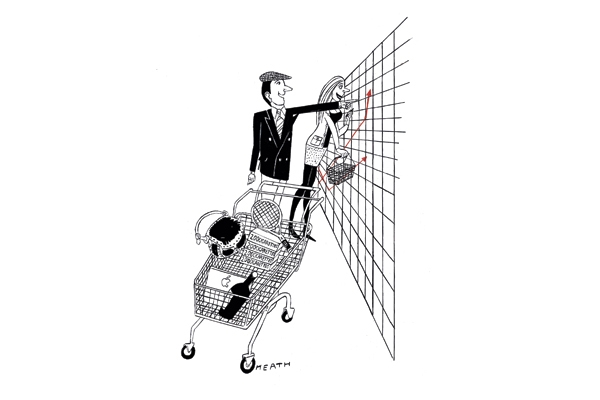The high street’s double-dip winners and losers
As austerity bites, competition in the high street grows ever more ferocious. Only the nimble and well-financed can thrive. While January and February showed some improvement and sunshine helped boost sales in March, the trend looks likely to be lower again in April. ‘The situation remains fragile,’ said Judith McKenna from Asda, chair of the CBI retail survey panel. ‘Consumers are still holding off from buying bigger ticket items, and opting to spend on smaller “treat” purchases that give them a lift without breaking the budget.’
According to Asda’s Income Tracker, the average UK family has only £144 of weekly disposable income to spend, a fall of 6.5 per cent from a year ago. Despite this, retailers polled by the CBI predicted better trading in May: the hope is that lower inflation will encourage consumers to spend more. Retail shares tend to benefit early in the economic cycle and despite the official double dip, anecdotal evidence still suggests recovery is on its way.
Amid the gloom there have been vast differences in fortunes. Sports Direct, which owns the Slazenger and Lonsdale brands, reported sales up by 13 per cent last week and expects to do well in the run-up to the Olympics. The shares have risen almost 40 per cent this year but fans remain keen. Jonathan Pritchard at Oriel Securities notes ‘a relatively low valuation of ten times earnings and… good potential for the online business’. International luxury brands have bucked the trend with shares in Mulberry, the handbag group, up 63 per cent in a year.
Dunelm is another one to watch. A Midlands-based out-of-town homewares retailer with 100 stores, it is growing fast. The shares have risen 15 per cent this year but look set to continue their run.








Comments
Join the debate for just £1 a month
Be part of the conversation with other Spectator readers by getting your first three months for £3.
UNLOCK ACCESS Just £1 a monthAlready a subscriber? Log in